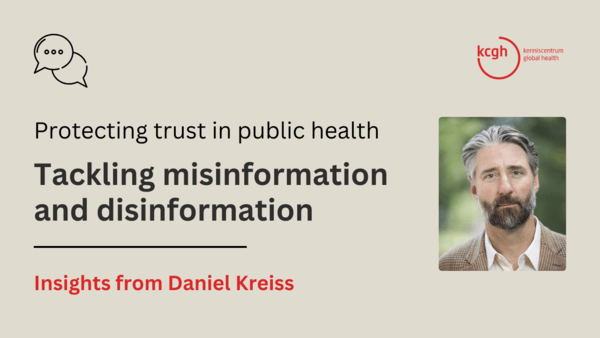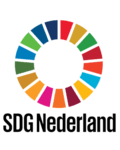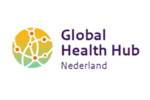Protecting trust in public health: Tackling misinformation and disinformation | Insights from Daniel Kreiss
With the rapid growth of media platforms and digital communication, misinformation and disinformation have become serious challenges to global health. Daniel Kreiss, a professor at the Hussman School of Journalism and Media and principal researcher at the Centre for Information, Technology, and Public Life at the University of North Carolina, recently spoke to Jill Borsboom, a student and research assistant at Utrecht University, about these pressing issues.

Why does addressing misinformation matter?
Kreiss explained how changes in the media landscape, such as the rise of unreliable sources and fragmented audiences, have created more opportunities for misinformation to spread. “There are far more media outlets now and there’s a rise of new sources of information that people trust,” he said, “but these sources sometimes lack expertise or are motivated by profit instead of public health.”
He pointed to the COVID-19 pandemic as a stark example of the harm disinformation can cause. During the crisis, some groups deliberately spread false information for political gain, which undermined public health measures and led to preventable deaths. “People put themselves and others at risk needlessly because they routed around the public health institutions whose job it is to protect public health,” he said. Beyond pandemics, misinformation can cause individuals and communities to mistrust public health organisations, putting everyone at greater risk.
What drives misinformation?
When asked about the motivations behind misinformation, Kreiss described a mix of political and economic drivers. Politically, he explained, misinformation is sometimes used to create doubt about science and weaken public trust in health advice. “In the US, opposition to masking and vaccines in some quarters was 100% political,” he said. “Initially, it was about downplaying the consequences of the pandemic to avoid damaging the Republican president’s image, but it grew into broader ideological questions about the role of the state in public health.”
Economic motivations are another factor. Kreiss criticised people and companies that sell unproven health remedies online, profiting from fear and uncertainty. “At worst, these products can make people sick,” he said, “and at best, they simply don’t work.”
Social media and influencers
“A lot of bad-faith actors manipulate the public for political or economic gain. Social media platforms have to draw a line, especially when content is likely to cause harm to public health.”
Social media plays a major role in spreading misinformation. Kreiss highlighted the tension between freedom of expression and the responsibility platforms have to protect public health. “A lot of bad-faith actors manipulate the public for political or economic gain,” he said. “Platforms have to draw a line, especially when content is likely to cause harm to public health.”
He criticised platforms for rolling back stricter measures taken during COVID-19. “There was political blowback from the right in various countries, so platforms stepped back,” he said. Kreiss believes companies should take more responsibility. “It’s not good business to run a platform where people might get sick using your product.”
“Influencers have the ability to connect with people in a way that public health agencies often can’t, but with that influence comes the duty to act responsibly.”
Influencers, too, have a responsibility to their audiences. “Influencers have the ability to connect with people in a way that public health agencies often can’t,” he said, “but with that influence comes the duty to act responsibly.” Kreiss called for a set of ethical standards for influencers, emphasising that they should be transparent about their motivations and ensure they don’t harm their followers.
Governments and generative AI
Governments also have a role to play in fighting misinformation. “The primary task of government is to put good information out into the public and to meet people where they are,” Kreiss explained. He stressed the importance of being transparent about the risks and trade-offs involved in public health decisions.
“Companies creating AI tools have a responsibility to ensure the integrity of the information these models return.”
On generative AI, Kreiss sees both potential and challenges. “Companies creating AI tools have a responsibility to ensure the integrity of the information these models return,” he said. AI could help improve public health communication or assist individuals in making informed decisions, but it must be used responsibly.
Building information literacy
Kreiss underlined the importance of teaching people to evaluate online information critically. “We all need to be critical consumers of information. Triangulate between different sources and look at the processes behind how information is produced. Public health agencies and news organisations have systems to verify facts, which social media often doesn’t.”
Moving forward
Kreiss’s insights show the need for collaboration between individuals, media platforms, influencers and governments to tackle misinformation effectively. By improving critical thinking, acting ethically and sharing reliable information, we can rebuild trust and reduce the harm caused by false health information.
For a closer look at these issues, you can watch the full interview with Daniel Kreiss here.
In addition, recordings from our recent symposium Navigating Truths: Demystifying Mis- and Disinformation in (Global) Health, held on 27 November 2024, will soon be available. These will include keynotes, panel discussions, and practical tools to combat misinformation. Keep an eye on our website and LinkedIn for updates!

